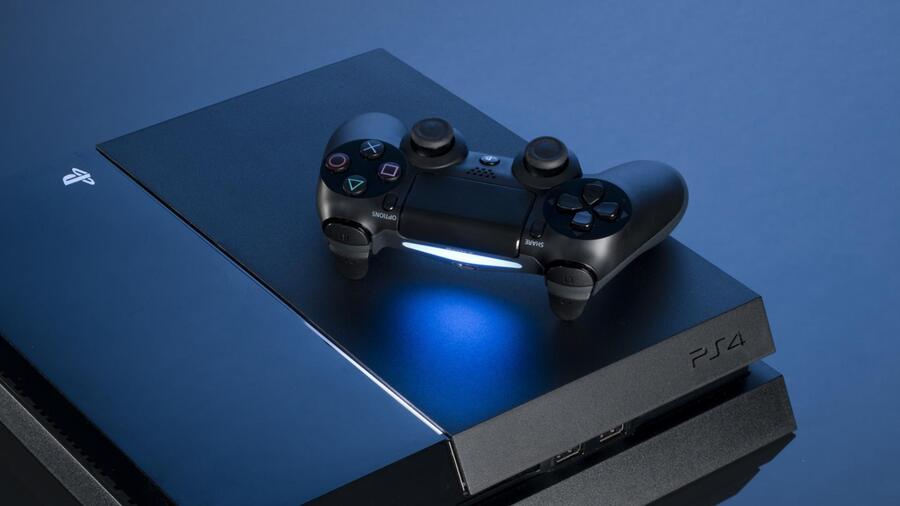
Six years have passed since the PlayStation 4 launched, and even the most optimistic PlayStation fan may not have anticipated how good the generation was going to be.
The PS4 has been home to an incredible array of console exclusives, and while there have been some stumbles along the way with things like cross-play, there are plenty of reasons to be cheerful.
But what of gaming as a whole? The games industry has changed, and with it so have our expectations. Where once we scoffed at paying out for items like horse armour, today millions will hand over their hard-earned cash for a Fortnite backpack or weapon skin. While games have received patches and updates since the PlayStation 3, we’re now often pleasantly surprised at how releases become almost unrecognisable, with changes plotted out on development roadmaps months in advance.
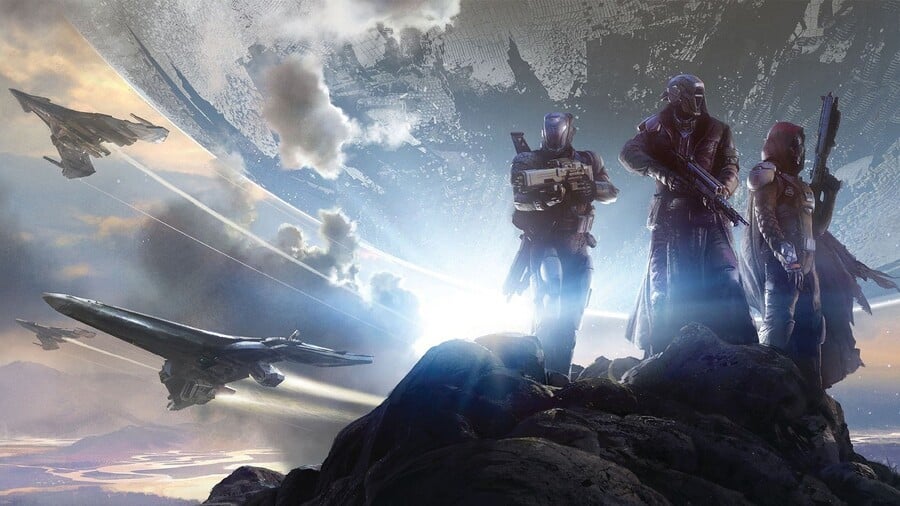
Join us as we take a look at how many new phrases have entered our gaming lexicon over the past six years. Some are positive, and some less popular, but all arguably offer the same significance for the platform (and other platforms for that matter), as any game release.
For the last couple of generations, video games have remained the same price. While the PS3 generation saw the rise of the indie game, and allowed some experimentation in the range of pricing available, in this generation developers have sought more consistent income from titles. After all, if someone buys a game for £50 and then trades it in, there’s simply no more money to be made from it.
Enter the “games as a service” model, which sees games getting seemingly constant updates to keep players engaged (and spending money). Coming into the generation, EA had already seen impressive numbers from the Ultimate Team mode they’d begun adding to sports games (itself a patched-in game mode), but it was Activision that arguably showed how lucrative the cycle could be.
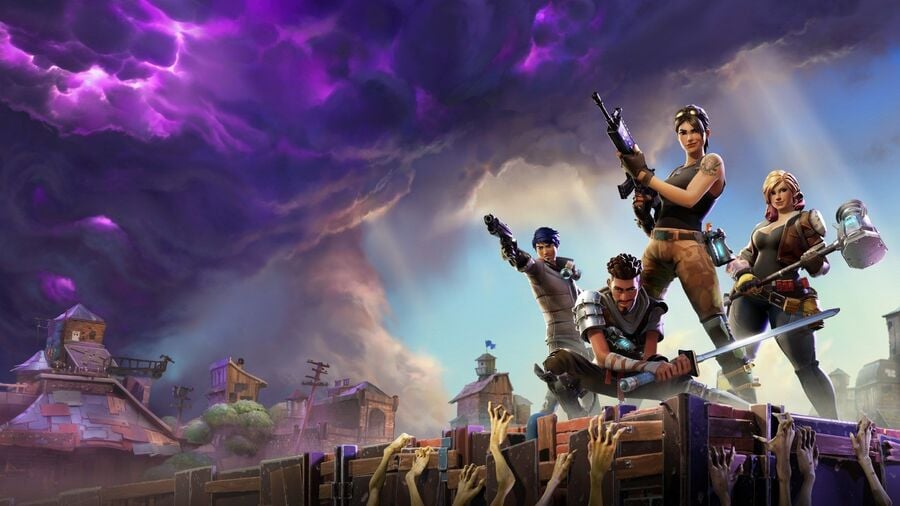
Destiny launched in 2014 as a full-priced title, and was followed by three expansions within the first year. To play the entirety of Destiny, players had to spend upwards of £120 -- not including micro-transactions (more on those later). Since Destiny’s success, many teams have looked to snatch a piece of this “shared-world shooter” pie.
Ubisoft’s The Division and its sequel have arguably come closest (even with the visual downgrade controversies of the first game back in 2014 -- remember that?), while Anthem has completely botched the idea, but there’s clearly a market for multiplayer-focused games that lean on progression systems that encourage grinding. Destiny 2 has recently begun to label itself as an MMO, which begs the question -- how far are we from monthly subscription fees?
Sticking with the theme of monetisation, this generation plenty of developers opted to release games for free, nada, zilch. The idea being that these would be support by micro-transactions, payments made for small in-game boosts (a la mobile gaming, often referred to as pay-to-win), or additional cosmetic options.
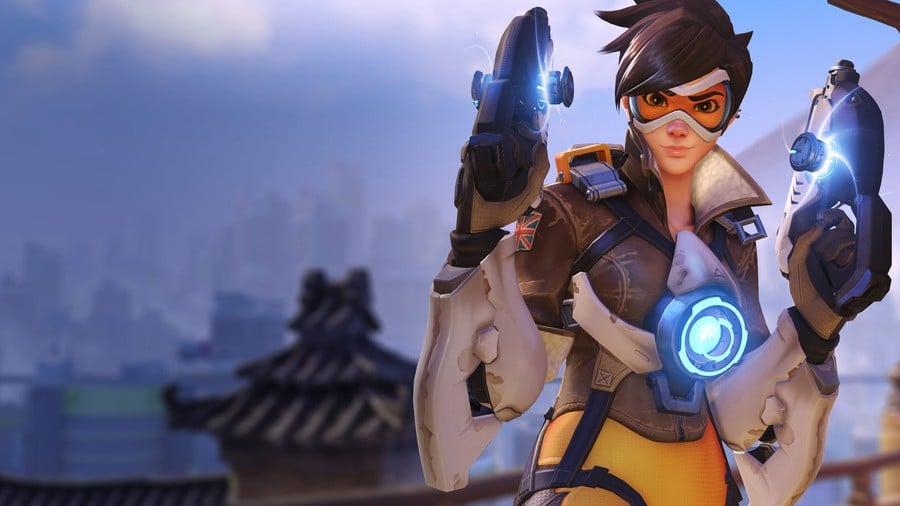
While many floundered, many of these free-to-play titles became household names. Smite, a third-person MOBA, carved it’s own niche, as did Warframe -- a perfect example of a game being essentially rebooted post-launch, having been available on the PS4 since day one.
We’re deliberately avoiding the obvious free-to-play elephant in the room here as we’re saving it for later, but the new avenues for monetisation didn’t stop with the micro-transactions.
Loot boxes became a key part of the gaming vernacular this generation, for better and for worse. Another concept with roots in mobile gaming and also firmly rooted in the aforementioned free-to-play market. These “surprise mechanics” (you can thank EA for that term) essentially equate to random booster packs of in-game items.
Games like Blizzard’s popular hero-shooter Overwatch keep themselves in gamers’ good graces by divorcing these unlocks from gameplay, keeping their effects to superficial personalisation options. Purchasing loot boxes help the developers continue to add content like maps and modes, and offers something extra for fans to add to their experience -- usually from an “in-game store”, something also fairly fresh to this console generation.
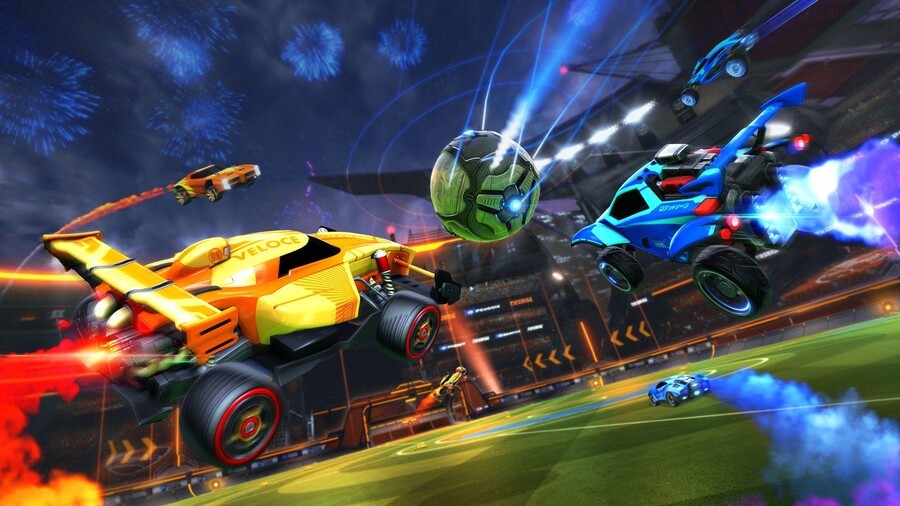
EA attempted to take random drops in a different direction, perhaps spurred on by FIFA’s Ultimate Team packs (and its sports game competitor 2K also finding some success of its own), and it reached its zenith with Star Wars Battlefront 2. The story is likely to be used as a cautionary tale for years to come, but boils down to adding bonuses for players that shelled out more money -- or at least it would’ve had outcry over the EA Access version of the game causing EA to pull the system at the eleventh hour (and allegedly incurring the wrath of Disney in the process).
Wait, EA Access? Subscription services have become part of gaming today, in all sorts of ways. EA Access offers trials of the publisher’s games before launch for just £20 per year, while Sony and Microsoft both offer their own versions of “all you can play” libraries for a monthly fee. Sony even allows you to stream an entire backlog of content, which still feels a little bit like magic -- and streaming games could be even more important next generation.
At the intersection of free-to-play and games-as-a-service, comes the Battle Royale genre. PlayerUnknown’s Battlegrounds may have popularised the genre on PC, but Fortnite took things to a stratospheric new level.
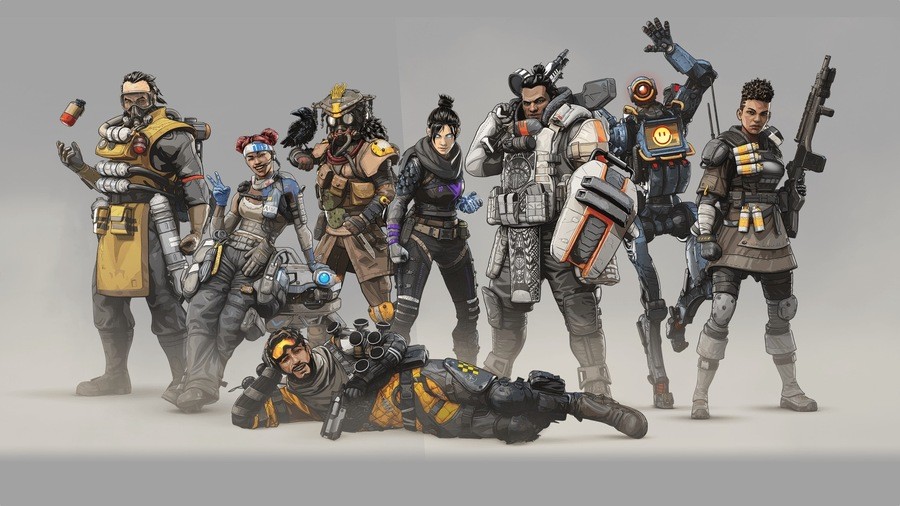
This spin-off of a long-gestating co-op title turned the previously po-faced subgenre of battle royale into a colourful, zany, and impressively generous free-to-play title that continues to be enjoyed by millions worldwide.
A big part of this is down to the Battle Pass, a fresh approach to monetisation that incentivises players to complete challenges to earn items they’d otherwise have paid extra for. It’s an approach that has since been pinched by “new kid on the block” Apex Legends, as well as Destiny 2 and plenty of others.
Despite the backlash to Diablo 3’s initial PC launch being “always-online” (and Microsoft’s muddled messaging about online check-ins and so forth), plenty of games are still inaccessible offline -- even if you just want to play solo. The much derided Ghost Recon: Breakpoint is one, while Death Stranding players will miss out on a lot of the fun of the game without being online (although arguably that’s not too surprising when the theme of the game is “connection”).
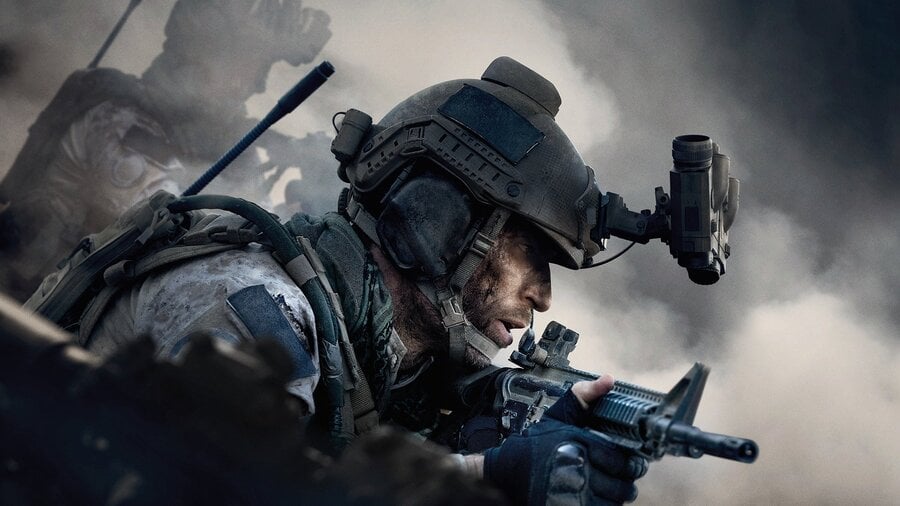
This may all sound a bit doom and gloom, but there’s plenty of fresh ideas that inarguably improve the experience of playing games. While Sony was slow to adopt cross-play, we’re glad it did -- being able to play across multiple platforms felt like a pipe dream, but after the breakthrough successes of Fortnite and Rocket League, this year’s Call of Duty: Modern Warfare offering the feature at launch felt like a huge moment for the industry. Tied in with Destiny 2 and Fortnite’s cross-progression system, and we’re approaching the “play wherever you want” future that many platform agnostic gamers have dreamt of for years.
Here’s a fun exercise to close this article. If you read back, you’ll note many of the additions made to our gaming glossary this generation are marked in bold. Total them up, and let us know how many of them you’d encountered before the PS4 generation in the comments below. There’s arguably no defining trend of the console generation because so many of them seemed to begin, or reach mainstream awareness, over the last six years.
As we approach the PlayStation 5, it’s time to look ahead to what new things developers and publishers are going to try. Gamers have traditionally been somewhat resistant to change, but this generation has shown that there’s room for plenty of experimentation.





Comments 19
Still remember playing the OG Battle Royale experience on Hunger Games servers in Minecraft lol. Impressive for the time and surely influential given it predated PUBG and Fortnite by a good 4 or 5 years.
The thing that annoys me is the very bad reputation SWBF2 have had even after cancelling any MT from day one of world wide release. Granted it took an outcry in the pre release but then gamers and the media should have shown support for the change. Instead we got incredibly misinformed pieces all over the internet and gamers running with that. Meanwhile everyone supported COD and co
Hopefully something that doesn't become a trend: microtransactions/loot boxes being added after a game has been released. If it does traditional reviews may become a bit pointless and sites may have to adapt to this.
How about a 10 dollar increase across the board on msrp and no loot boxes or mts ever lol. I know that isnt happening because even a 15-20% increase across the board wouldnt match the insane amount of revenue coming from GaaS and MTs
How about that this generation they said midway that single player experience died?! And look at it now. The trend is back!
For these online focused games, games with battle passes/lootboxes can be done right if the publisher actually cares enough. Like the article says it does help the devs cover for new content so some consumers I guess make the sacrifice to buy them and everyone else reaps the benefits. The recent one for me is MW2019 and it's always adding new maps/modes for free. Didn't pay a single penny outside of the $60 for the digital copy.
I like this new way though it's not perfect. Good enough to where I can just play some games here and there weekly when I wanna play some shootin and then go back to immersive single player games.
Worst offender is Starwars BF2.
I would add the rise of digital content adoption. I know that there are people that prefer physical copies of their games for various reasons (collectors, trade-ins, always available, etc.), but digital storefronts have seen major growth. This generation, I purchased a total of three physical copies. My first was Robinson: The Journey, because I could pre-order it from Amazon and get it for less than half price. My second was Farpoint...simply to get an Aim controller. My third and final physical copy is my Kickstarter backer copy of Shenmue 3. Every other game in my library is digital.
Nothing has really changed in the way I play my games since the PS1 days i.e I buy a game on disc and play it then move on to the next game
I know this has been going on since day dot, but if companies actually put real effort and resources into a game WITHOUT blatantly copying what comes before they would be better off long term.
Look at anthem. Tried desperately to copy Destiny. Loads of money available. Then total mismanagement. Complete failure.
It’s insulting to gamers when publishers pull this s***.
This was the generation I became an expert at parental controls to stop my kids spending money on crap Lootboxes.
Great article BTW, super read. Now away from the online stuff (Lootboxes are awful, I genuinely have no idea why they are allowed in pegi 3 games) the biggest and most disappointing issue this generation is money grabbing dlc, what I mean by that; music tracks or missing characters in a roster - sold on for extra money on or near release day. Cut content which you should reasonably expect to be part of the retail product. It's not free to play so we should expect a fat load of content without reaching for our wallets and purses. It saps immersion, fun and trust.
Driving games and one v one Fighters have been soaked in pi$$ in that regard. My favourite genres!!!!
I play the same way I have since the Atari 2600 days: with physical games, no online, and only local multiplayer.
Nope, nope, nope, enjoyed a little Rocket League, nope and nope.
What about the semi-recent trend of releasing incomplete games, and paying on installments for what should have been there in the first place. It's called unbridled capitalist greed!
@lacerz
Couldn't have said it better myself. I went all digital for this gen and it's been a revelation for me. This was definitely made easier by me using Steam as well.
I still remember playing Amiga games which were on 15 or 20 floppy discs 🤣
@Neolit that’s why it’s titled “the PS4 generation” as opposed to just the PS4 - it’s not solely focused on PlayStation because these are industry trends that exist outside of the Sony ecosystem. Hope this helps!
@Ridwaano And some so called 'experts' said this gen would be a flop because mainly of the rising popularity of mobile gaming. PS4 and it's 100+ million consoles sold says hello.
A lot of changes occurred during this console gen.
Remember on the PS3 when a new game came with a code that allowed you to play online, and if you bought a pre-owned copy of a game, had to buy that code on PSN?
"For the last couple of generations, video games have remained the same price."
Absolutely untrue.
In the UK, the RRP for Sony's first-party titles increased from £39.99 at the launch of PS3, to around £55 at the launch of PS4. I've been told on a number of occasions that it's a similar case in Europe.
The US price remained at $60 though.
I buy games on their own merit I don't even think about the DLC or Microtransactions 99% of the time. I stay away from multiplayer games where most of the bad practices are used. Destiny MMO game style or Drive Clubs ghost player cars was about as close to multiplayer as I want to get. I like rewards for game play even if it's a grind. My money goes to more NEW games not hanging onto games I finished. Really good games I just start over and play again.
Leave A Comment
Hold on there, you need to login to post a comment...